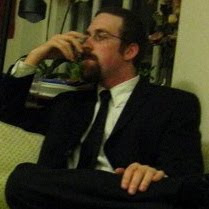I remember when I first read the Talmudic accounts of Shamayim (Heaven) being like a giant Beit Midrash (House of Study) and feeling a little bit like the Rabbis were creating heaven in their own image. The whole thing seemed a little puzzling to me. I, like many others in the Messianic Jewish movement, was taking for granted the role of learning and learning communities. This is not that uncommon in the wider Jewish world either. Gemilut Hasidim and Avodah are treated as superior devotional categories in liberal branches of Judaism. Torah is practically treated as the smallest of these pillars and relegated to the realm of scholarship, with very few exceptions. Torah learning is not seen as devotional but the realm of the intellect which as a result of our platonic inheritance is seen as separate from intuitive experience and physical action.
The beginning of my week-long Rabbinical school intensive didn't seem to offer anything new to shatter the status quo in this regard. Very early on I was told that the experience would be a combination of the intuitive with the academic, achieved through two classes: "Experiencing the Ruach in Jewish Space," and "Seminar in Rabbinic Texts: Eikha Rabbah" each corresponding to one of these modes, respectively. No one mentioned the academic value in the Ruach class, and even few explored the intuitive spiritual value of the Midrash seminar. Nothing could have been further from the truth...
Both classes required academic skill. Both classes connected me more deeply to God, Am Yisrael, The Body of Messiah, and my own soul. The experience of all of us learning and living together enabled me to: be spontaneous in the siddur, be liturgical in free-form prayer expressions, feel deeply in working out translations, and to excercise my intellect in devotional meditation. The dichotomies and tensions I once lived with vanished and I knew I would never be the same. Why this sudden change?
We all came together primarily to learn Torah, and that included living together in intentional community (making breakfast, cleaning up after lunch, cleaning the bathrooms, etc.), praying together, and sharing together. I grew closer to everyone during this time in a way that I didn't anticipate but am eternally grateful for. The crying, laughing, thinking, praying, yelling, whispering, and general intimacy came because we did acts of kindness for one another, we prayed together, and we learned together. It was truly a Beit Midrash...
It dawned on me that willingness to learn together is so under-appreciated in our community and this is a major hinderance to our growth. We're all looking for common theology and the perfect prayer services. Without learning together, where will our familiarity with the language of the siddur come form? Without learning together, where will the arousal to speak to God from what we have first heard come from? Without learning together, where will the knowledge of one another come from? Charity is important. Theology is important. Intimacy with God is important. Sharing meals together is important. But it is the Torah which first taught us these things are important, and without its reminders and potential for new revelation we will most certainly forget and these important categories will lose their power in our lives. I am convinced that it was our learning together fueled the intensity of our davening and communal connection with one another.
I encourage all of us to work toward the formation of learning communities within our movement. I know my first experience of one was a little taste of Shamayim...

Great Post! I echo your thoughts as well!
ReplyDelete